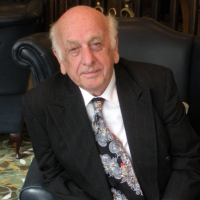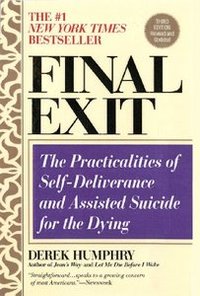Derek Humphry Interview Published on: 14, Feb 2018
 Tell us a little about your childhood in the UK. How do you think it compares to childhood in the USA?
Tell us a little about your childhood in the UK. How do you think it compares to childhood in the USA?
My childhood was mainly overshadowed by WW2. My home city, Bristol, was heavily bombed by the Germans, hundreds died, city center wiped out. It was planned to send my brother and I to relatives in Pasadena, California, for safety. But at that time the Germans were winning the Battle of the Atlantic, and it was too dangerous. Many children were drowned on the voyages, so my family instead sent us to live in the countryside.
Did you always want to become a writer or did you have other aspirations as a child?I wanted to become a writer from about 14 years old. Nothing else was considered. I was hugely influenced by the war reporting, particularly the lucid, informative talks by Alistair Cooke ('Letter from America' on the BBC.)
Name one piece of literature that, upon reading it, changed your life.Charles Darwin, "The Origin of Species"
What motivates you to write? What do you hope to change with your books?I hope, in my small way, to make the world a better place.
Why did you decide to write "Jean's Way"? What was the hardest part about writing this book?I wanted to make a stab at changing the laws forbidding assistance in suicide for end-stage terminally or hopelessly ill persons. 2. To memorialize Jean's courage and determination. I wept over the typewriter in the last chapters.
When did you establish the Hemlock Society USA and what are some of its main goals?I started the Hemlock Society USA in 1980 in my garage in Santa Monica (I had emigrated to US to join the Los Angeles Times.) From Day One, Hemlock's two main goals were to advise people currently suffering unbearable pain and distress in the final stages of their illnesses, and secondly to reform the laws against assisted suicide so that doctors could actively help people to die if that was mutually agreed, with safeguards.
What does the book "Good Life, Good Death" mean to you and how does it compare to "Jean's Way"?My 2018 memoir, "Good Life, Good Death" explains the main features of my whole life, my upbringing, 35 years as a journalist, and what drove me to kick-start the American right-to-die movement. "Jean's Way" 1978 concentrates on one family's struggle. I've been told that some men find 'Jean's Way' helpful when handling breast cancer in their spouse.
Why do you think assisted suicide is an important issue to be discussed? What are some arguments you have for the people that are against it?It's an important issue because everybody dies. An increasing number of people nowadays wish to plan for a peaceful, non-painful death. The bulk of the opposition comes from people and institutions with strong religious feeling. I understand that. There will never be unanimity on this subject. My message has been that each person should decide, based on their personal philosophy, whether voluntary euthanasia is a possibility for them, or not;
What sort of backlash did you deal with upon the publication of your book "Final Exit"? What are some positive reviews you've also received for this step-by-step book on assisted suicide?The religious right was furious. One of heir web sites labelled me as 'The Anti-Christ of the Month'. The book did not depend on reviews for its No.1 success because the only two reviews came after it took off -- in the New York Review of Books and Nature. It was talk show television which drove the books sales.10.
Have you ever thought about writing fiction novels? If so, what would it be about?I tried writing fiction when I was young, but it became clear that I did not possess the bent for it. I'm a good reporter, not a creative writer.
What has been your proudest moment in your entire life? What are some other things you hope to accomplish in the coming years?Publishing my memoir recently, and in it the troubled and difficult lives of my parents. Now pushing 88, I've finished writing after 13 books, confining my self to newsy essays.
When you're not writing, what are some things you like to do to pass the time?I used to write in the mornings and sail in the afternoons for relaxation and think about the next chapter. Too old to sail now.
What's the best piece of advice you've ever given anyone?In life, everything in moderation.
Share Derek Humphry's interview
Author Derek Humphrey spent his time as a little boy in Bristol (later moving to the countryside) to a childhood overshadowed by WW2. He wanted to become a writer from about 14 years old and was hugely influenced by the war reporting, particularly by Alistair Cooke. As a writer, he hopes, in any small way, to make the world a better place. He started the Hemlock Society USA in 1980 in his garage in Santa Monica with two main goals- to advise people currently suffering unbearable pain due to illnesses, and secondly to reform the laws against assisted suicide. Although unable to now because of his age, Derek was a lover of sailing during his youth. The best advice he's ever received is "In life, everything in moderation."
 Good Life, Good Death: The Memoir of a Right to Die Pioneer
Genre: Advice & How To, Biographies & Memoirs, General Nonfiction
Good Life, Good Death: The Memoir of a Right to Die Pioneer
Genre: Advice & How To, Biographies & Memoirs, General Nonfiction




